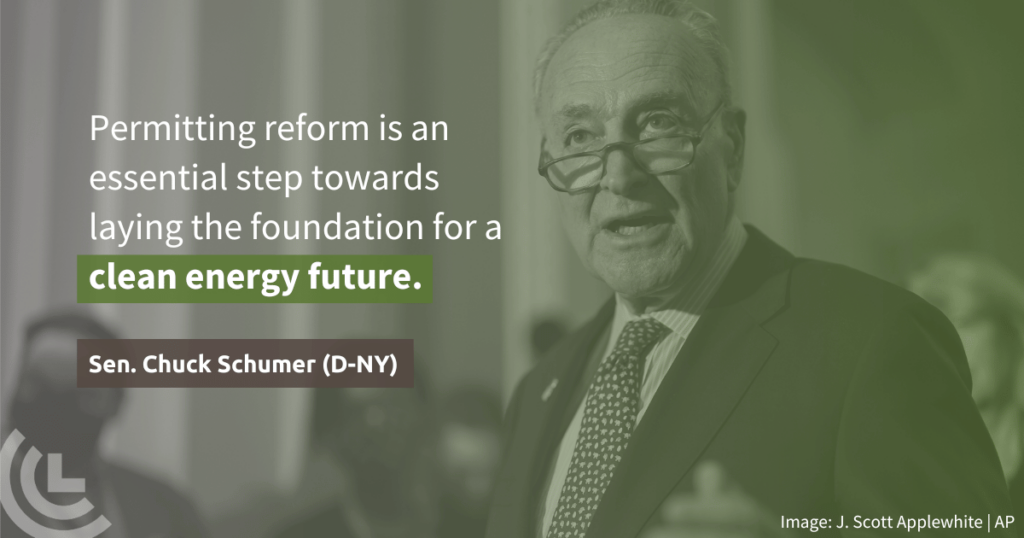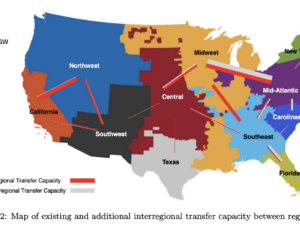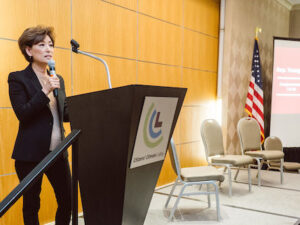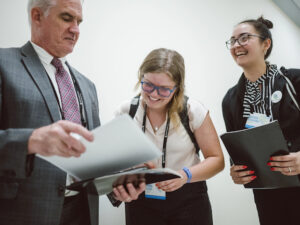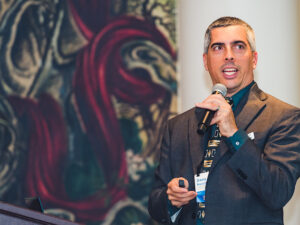Comparing permitting reform proposals across the political spectrum
Clean energy permitting reform has emerged as the hot climate policy area this year, with new proposals dropping fast and furious in recent weeks. Progressives, conservatives, and centrists have all offered numerous permitting reform bills and outlines for consideration. And Congress just passed some permitting reforms in the debt ceiling deal. It’s a lot to process!
To help CCLers absorb this veritable flood of information, we recently held a Citizens’ Climate University training comparing permitting reform proposals from across the political spectrum. CCL Research Coordinator Dana Nuccitelli led the training along with host Brett Cease, CCL’s Vice President of Programs. Watch the full training here or read on for a recap:
Clean energy permitting reform is a key climate policy
The permitting process is important to ensure that communities, environments, and workers are protected from undue harm during the construction and operation of a new project, but permitting also adds time and expense to projects of all kinds. As Dana put it, “We have to make sure we find the right balance between doing thorough and accurate permitting and environmental assessments, but not taking too long in delaying the transition to clean energy.”
Energy experts have warned that if we don’t start building clean energy infrastructure faster, we will only achieve about 20% of the potential carbon pollution reduction from the Inflation Reduction Act. That’s why clean energy permitting reform is such a critical climate policy area in 2023.
CCL’s permitting reform principles
As Dana outlined, CCL supports permitting reform policies that achieve the following three goals:
- Adding to America’s capacity to transmit clean electricity
- Speeding up the approval of clean energy projects that are waiting to be built
- Preserving communities’ ability to make their voices heard on the environmental and other impacts of proposed energy projects
CCL won’t support just any permitting reform proposals; only good ones that drive down carbon pollution by speeding up approval for good clean energy projects while protecting the health and safety of American people and communities.
Proposals from across the political spectrum
The good news is that there’s bipartisan support for clean energy permitting reform in Congress. Progressive proposals have mainly focused on giving the Federal Energy Regulatory Commission (FERC) more authority over permitting big important electrical transmission lines in order to expedite that process. Progressives have also offered several suggestions to help communities make sure their voices are heard in the permitting of projects that could directly impact them.
Conservative proposals have mainly focused on streamlining the National Environmental Policy Act (NEPA) permitting process, and many provisions to accomplish this goal were included in the debt ceiling deal. Conservatives’ main concern is with transferring too much state authority over the transmission line permitting process to federal agencies like FERC.
Centrist permitting reform proposals have included a lot of overlap with progressives and conservatives, including components that would give FERC more authority over transmission lines and streamline the NEPA permitting process. As Dana said, these proposals are “a good starting point to broker a bipartisan compromise.”
What’s next after the debt ceiling deal?
As CCL noted in our statement on the debt ceiling agreement, the permitting reforms it included are not enough. We still need to boost transmission projects and improve early community involvement, for example. And as CCL’s VP of Government Affairs Ben Pendergrass noted in a new video, “It’s actually perfect timing for CCL to be taking to the Hill here in June to continue to push Congress to go further and to go faster on permitting reform. Permitting reform is still going to be a major focus of the June lobby day.”
CCL Government Affairs staffers Ben Pendergrass and Jenn Tyler will provide an update on the lobby day asks, including permitting reform, at the conference on Sunday, June 11, at 2:45 p.m. ET / 11:45 a.m. PT. Register now to watch the livestream of their session.
And while conservative members of Congress got many of the NEPA reforms they were seeking in the debt ceiling deal, there are still some items left on the table that they will want to include in a more comprehensive permitting reform package. Stay tuned in the coming weeks for more information about those remaining permitting reform opportunities and how we might be able to get Republicans back to the negotiating table.

